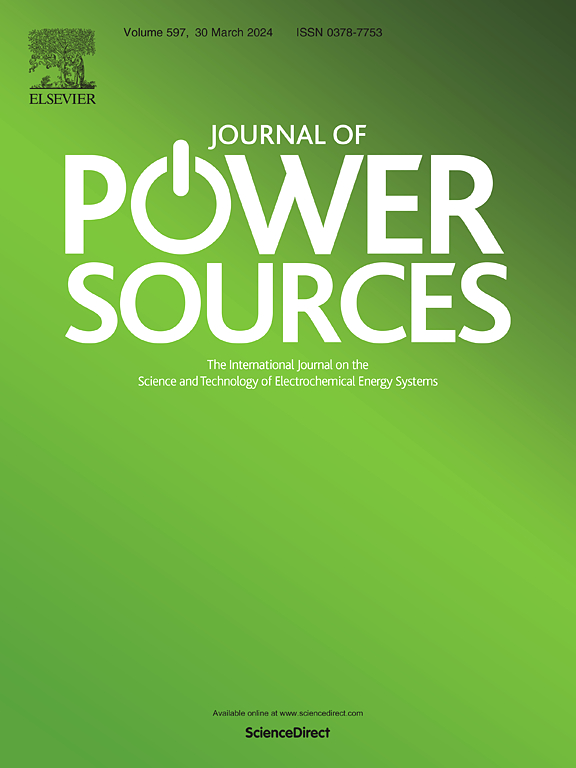Modeling of temperature characteristics of lithium-ion batteries considering the state dependency and its robust estimation of internal temperature
IF 8.1
2区 工程技术
Q1 CHEMISTRY, PHYSICAL
引用次数: 0
Abstract
Accurate internal temperature estimation of lithium-ion batteries (LIBs) plays an important role in their safe and economical application. However, the traditional observer estimation method based on linear thermal models cannot accurately describe the nonlinear dynamics of the LIB, and the data-driven estimation approach based on an open loop structure makes it difficult to obtain satisfactory robustness. To bridge this research gap, we construct a state-dependent model to represent the LIB's nonlinear dynamics. The coefficients of this model are implemented by a set of radial basis function neural networks, thus the model considers the actual state of the LIB under different working conditions. Based on the identified state-dependent model offline, an online estimation method of the internal temperature is implemented using the extended Kalman filter (EKF). Furthermore, the robustness is further verified by the extended state observer-EKF. The validation results for different batteries and working conditions show that the root mean square error (RMSE) does not exceed 0.30 °C in the presence of wrong initial values, and it does not exceed 0.28 °C in the presence of bias noise.
求助全文
约1分钟内获得全文
求助全文
来源期刊

Journal of Power Sources
工程技术-电化学
CiteScore
16.40
自引率
6.50%
发文量
1249
审稿时长
36 days
期刊介绍:
The Journal of Power Sources is a publication catering to researchers and technologists interested in various aspects of the science, technology, and applications of electrochemical power sources. It covers original research and reviews on primary and secondary batteries, fuel cells, supercapacitors, and photo-electrochemical cells.
Topics considered include the research, development and applications of nanomaterials and novel componentry for these devices. Examples of applications of these electrochemical power sources include:
• Portable electronics
• Electric and Hybrid Electric Vehicles
• Uninterruptible Power Supply (UPS) systems
• Storage of renewable energy
• Satellites and deep space probes
• Boats and ships, drones and aircrafts
• Wearable energy storage systems
 求助内容:
求助内容: 应助结果提醒方式:
应助结果提醒方式:


